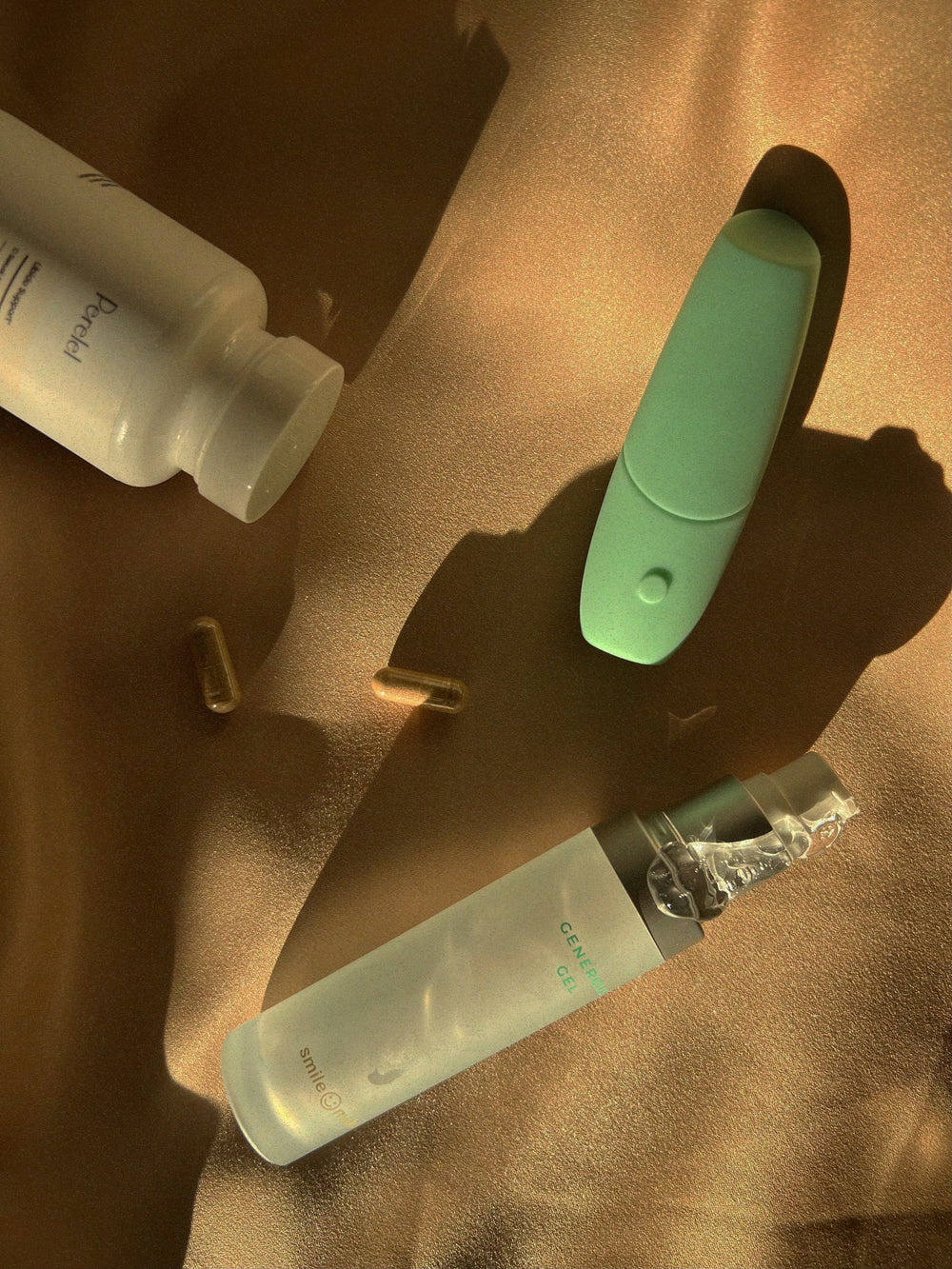On paper, the process of making a baby should be pretty fun. But the truth is that when we’re having sex with a very specific outcome in mind, it can start to feel like work—especially if it’s taking a little longer than anticipated. That’s not even to mention balancing the mental load of excitement, anxiety, cycle tracking, and all the big emotions and little details that come with trying to conceive.
But while pleasure doesn’t directly impact fertility outcomes, finding joy in sex does have a net positive on the conception experience: It can help alleviate stress and deepen your connection with your partner during this chapter. Let’s look a little closer at the intersection of pleasure and TTC.
First, a primer on pleasure.
All those warm, gooey sensations we experience while getting it on? Those feelings are the result of chemical surges in our body. During sex, feel-good hormones like endorphins and oxytocin activate the pleasure centers in our brain, which relax us and help us feel even more bonded with our partner. If the session peaks in an orgasm, it’s the result of a hefty cocktail of those chemicals: The secretion of oxytocin leads to rhythmic muscle contractions for women, and ejaculation for men. The higher the hormonal surge, the more intense the orgasm. (Fun fact: research shows that 30 distinct parts of our brain are activated during an orgasm.)1
Does having an orgasm increase your chances of getting pregnant?
The short answer is “no”—but it also doesn’t hurt. “While orgasm doesn't increase rate of conception it does produce oxytocin,” says Dr. Caitlin O’Connor, ND, a naturopathic doctor and Perelel Panel member. One of the side effects of oxytocin is relaxation—and since we know that high stress levels can impact ovulation and sperm health, pleasure is certainly a positive ingredient for your TTC routine.2,3
Beyond counteracting stress, pleasure builds connection with your partner.
The hormones that are associated with pleasure and arousal are the same feel-good chemicals that help us feel bonded to our partner. Oxytocin’s nickname is the “love hormone”—it’s the same chemical secreted during breastfeeding to foster a bond between mom and baby. This is especially key during a time when the purpose of sex feels larger than your relationship, which can lead to a disconnect from pleasure.
When we surveyed nearly 1000 Perelel community members about their TTC experience, many respondents noted that it was tougher to feel bonded with their partner when sex felt “prescribed” rather than just having it for fun. But while it’s easier said than done, finding ways to bring levity into the moment and get back to the bond the two of you share can make all the difference in this chapter.
How to bring pleasure into the babymaking process
This chapter is so personal, and ultimately, you and your partner are the best judge of what works and feels great for you. That said, our experts have a few pointers for unlocking pleasure when things start to feel formulaic:
The bottom line: TTC is such a personal journey, full of unique ups and downs. But while pleasure ultimately looks different for everyone, finding moments of joy and connection can make all the difference as you navigate this chapter together.
Resources:
- Wise NJ, Frangos E, Komisaruk BR. Brain Activity Unique to Orgasm in Women: An fMRI Analysis. J Sex Med. 2017 Nov;14(11):1380-1391. doi: 10.1016/j.jsxm.2017.08.014. Epub 2017 Oct 3. PMID: 28986148; PMCID: PMC5675825.
- Cera N, Vargas-Cáceres S, Oliveira C, Monteiro J, Branco D, Pignatelli D, Rebelo S. How Relevant is the Systemic Oxytocin Concentration for Human Sexual Behavior? A Systematic Review. Sex Med. 2021 Aug;9(4):100370. doi: 10.1016/j.esxm.2021.100370. Epub 2021 Jun 9. PMID: 34118520; PMCID: PMC8360917.
- Schliep KC, Mumford SL, Vladutiu CJ, Ahrens KA, Perkins NJ, Sjaarda LA, Kissell KA, Prasad A, Wactawski-Wende J, Schisterman EF. Perceived stress, reproductive hormones, and ovulatory function: a prospective cohort study. Epidemiology. 2015 Mar;26(2):177-84. doi: 10.1097/EDE.0000000000000238. PMID: 25643098; PMCID: PMC4315337.
- Rullo JE, Lorenz T, Ziegelmann MJ, Meihofer L, Herbenick D, Faubion SS. Genital vibration for sexual function and enhancement: best practice recommendations for choosing and safely using a vibrator. Sex Relation Ther. 2018;33(3):275-285. doi: 10.1080/14681994.2017.1419558. Epub 2018 Jan 4. PMID: 33223961; PMCID: PMC7678780.

